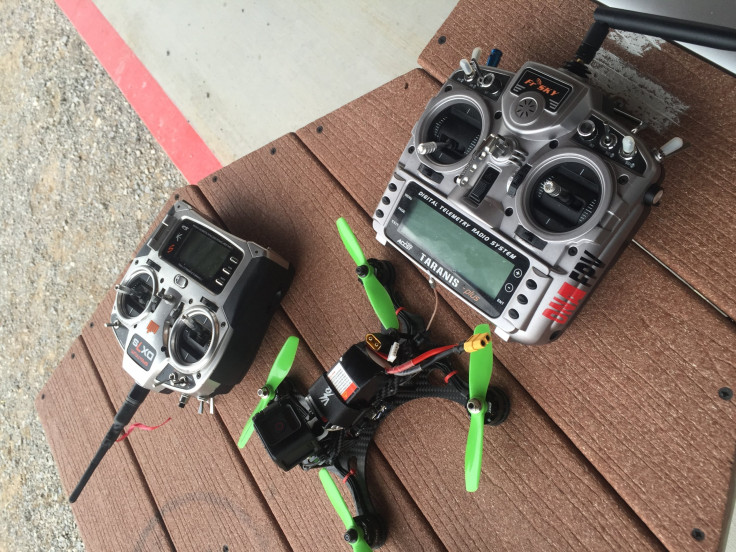Drone stakeholders, including the Federal Aviation Administration, manufacturers and drone companies were able to come together last year (over the course of three days) to agree on a significant compromise that led to the creation of the Unmanned Aircraft Registration System. Since the system went live Dec. 21, 2015, more than 182,000 drone users have registered, according to FAA Administrator Michael Huerta.
While the registration system if off to a noticeably successful start, those stakeholders who met in the middle to create the system have differing ideas on what to do next. Those opinions were expressed Thursday at CES 2016 during a forum about drone policy and practices.
“ Registration became a tool to reach out to that community to help educate them, establish accountability and responsibility,” said Marke Gibson, Sr. Advisor, UAS Integration, Federal Aviation Administration.
Disagreements arose in discussions about future laws and how to define whether a drone user is using the device for commercial or recreational purposes… and maybe the need to have other definitions for non-profits, government agencies, etc.
Brendan Schulman, who is the VP of Policy & Legal Affairs at DJI (the leading drone maker in the world) acknowledged the successful cooperation to create the act but feels much more needs to be done to give clarity to drone users and makers.
Since different forms are required for commercial and drone hobbyists, there is confusion (for some) on how to define the two.
“For the average person just doing it for pure enjoyment… or no additional business tied to it in anyway, then you’re a hobby and recreational operator,” Gibson said. “Going beyond that, you are a commercial operator.”
“(Easy) way to understand it, if you’re doing it for money, consider yourself commercial,” said Nancy Egan, General Counsel, 3D Robotics.
Schulman said it’s not that simple. What about first responders, drone education at universities?
“Firefighters to use drones (at a scene)… schools teaching people to use drones, Schulman said. “My concern with the rule making is dividing the world purely as recreational and then everything else.”
There are separate forms and regulations for both as well. A commercial operator is required to file a 333 exemption to the FAA. To date, according to the FAA’s website, 2,817 petitions have been granted.
According to official FFA documents a commercial operator means, "a person who, for compensation or hire, engages in the carriage by aircraft in air commerce of persons or property, other than as an air carrier or foreign air carrier or under the authority of Part 375 of this title. Where it is doubtful that an operation is for “compensation or hire”, the test applied is whether the carriage by air is merely incidental to the person's other business or is, in itself, a major enterprise for profit."
Schulman said the FAA, along with city, county and state officials, need to know that most current laws about privacy and surveillance on the books are sufficient.
“Start with the existing laws that are already on the books,” he said.
There is no need, he said, to muddy the process with more regulations from politicians who in some cases have never flown (or seen) a drone before voting on such a law.
“Drone statutes tend to get it wrong,” Schulman said. Governments already have laws to “address in the invasive nature of technology.”
Egan agreed.
"(My) experience of talking to lawmakers about drones is you have to do a lot of talking because lawmakers do not have a lot of experience with drones," she said.
While imperfect, there are still gripes about the weight cutoff of drones and beyond the line of sight laws, those speaking at the forum feel happy with what has been achieved with drone policy to this point.
“The theme was, make it simple so people will comply. If people don’t comply, we don’t get the safety benefit,” Egan said. The registration act is proof “ the FAA can work together with industry to solve the challenges before us quickly and simply.”
“UAS (Unmanned Aircraft System) is the most fundamental change in aviation we’ll see in our lifetime,” Gibson said. “I think we’re heading in the right direction and I can speak for my leadership that they get it.”
“If you love the technology, go out there and meet your local lawmakers,” Schulman said. “Get to know your member of congress, your city councilor. A lot of legislation that is unfavorable stems from a lack of knowledge.”

















